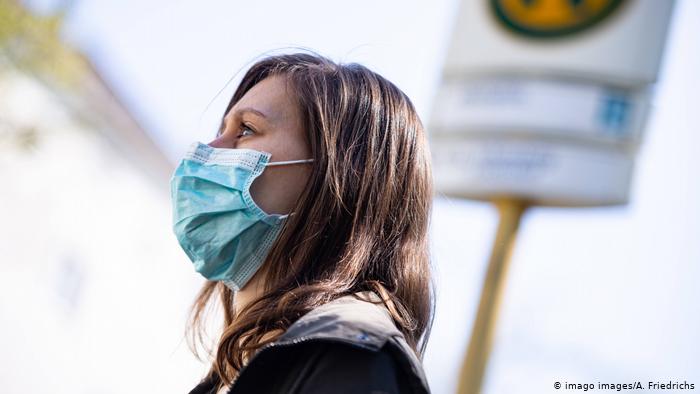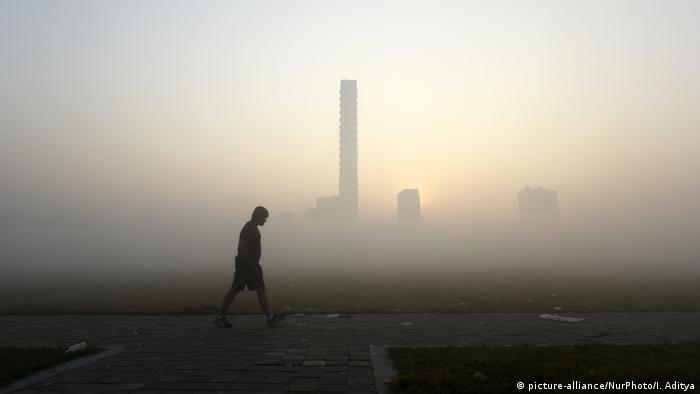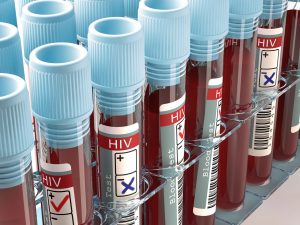- EU leaders appear to be split on how to help the bloc’s economies recover
- New coronavirus infections rise in Germany for the third day in a row
- Google says ‘state-sponsored’ groups are targeting institutions like the WHO
- New York is launching a campaign to track and isolate COVID-19 cases
- There are over 2,629,000 confirmed COVID-19 cases and 183,450 deaths worldwide, according to the Johns Hopkins Institute
Updates in Universal Coordinated Time (UTC/GMT)
06:00 The president of the World Medical Association, a federation of national medical associations, has criticized the decision taken by all German states to require residents to wear face masks in public.
“I wear a mask out of politeness and solidarity, but I think making it a legal requirement is the wrong move,” association president Frank Ulrich Montgomery told German daily the Rheinische Post. “People wearing masks think they are safe, and they forget the most important factor, which is keeping a minimum distance from other people.”
Montgomery added that wearing the masks improperly could be more dangerous than not wearing them at all. The virus collects in the fabric of the mask, which makes it very easy to become infected when removing it from your face, he explained.
He said only real medical face masks should be required and that requiring the use of scarves or other fabric is “laughable.”
At the same time, he said, all “truly effective masks” need to be reserved for use by medical personal.
05:40 Companies in Germany expect restrictions to public life to last for a total of 3.9 months, according to survey figures released Thursday from the country’s ifo Institute, a think-tank that tracks the German business climate.
The new figures reveal that 50% of German companies have introduced Kurzarbeit, or short-time work, while 18% of firms want to cut jobs.
Short-time work is a mechanism in Germany that allows companies hit in an economic downturn to either send their workers home or significantly reduce their hours without having to lay them off with the state paying some of the employees’ wages.
“For many companies, short-time work is the method of choice to cushion a lack of sales and to retain their workforce in the short term,” director of the ifo survey Klaus Wohlrabe said.
Around 15% of companies have halted production or closed.
Some 84% of survey respondents said they have noted a decline in sales due to the coronavirus crisis, though 45% believe they can make up the loss in the future.
Some 41% of companies in the industrial sector, and 53% in trade, have experienced problems getting essential supplies delivered.
The coronavirus outbreak has caused 76% of German companies to increase their number of employees working from home.
05:10 UN Secretary-General Antonio Guterres said the coronavirus pandemic is ”a human crisis that is fast becoming a human rights crisis.”
In a video message posted on his Twitter account, Guterres warned about the pandemic’s ”disproportionate effects on certain communities, the rise of hate speech, the targeting of vulnerable groups, and the risks of heavy-handed security responses undermining the health response.”
He added that with ”rising ethnonationalism, populism, authoritarianism and a push back against human rights in some countries, the crisis can provide a pretext to adopt repressive measures for purposes unrelated to the pandemic.”
Thursday marked the third consecutive day of rising infections, just as federal states across the country are beginning to loosen up lockdown restrictions. Germany also tallied 215 COVID-19 deaths, for a total of 5,094, RKI said.
RKI figures rely on data from state and local health officials and are updated around once a day, which can lead to deviation from other published statistics, such as those from the Johns Hopkins University.
04:00 European Union leaders will meet by videolink on Thursday for negotiations over an economic aid package to help the bloc’s economies recover from the coronavirus pandemic.
Although all of the EU’s 27 member states have agreed that a stimulus package potentially amounting to hundreds of billions of euros will be necessary, there are deep divisions over how it should be funded.
Intensions reminiscent of the Eurozone financial crisis, heavily indebted southern states are again depending on relatively financially stable northern countries to do the heavy lifting.
Spain and Italy, which were both severely impacted by COVID-19, are demanding “solidarity” from countries like Germany and the Netherlands, which have rejected the idea of a mutualized EU debt scheme known as “coronabonds.”
However, there are low expectations for a breakthrough on Thursday, with one diplomat telling the AFP news agency that leaders are not even expected to issue a joint statement following the meeting.
In an invitation letter, EU Council President Charles Michel urged EU leaders to “work towards” a European Recovery Fund aimed at the long-term rebuilding of the bloc’s economy after the pandemic subsides.
The leaders are expected on Thursday to ask the European Commission to provide an estimate of the needs for long-term financial aid. They will also sign off on the 540-billion-euro ($584-billion) emergency aid package agreed to by EU finance ministers earlier in April.
“A different instrument is on the table,” Franziska Brantner, a member of the Bundestag for Germany’s Green party, told DW when asked about her party’s insistence on using so-called “coronabonds” in this current crisis.
“I know that the government and conservative forces have tried to frame it as the same debate as in 2008,” said Brantner. But “it is not about us shouldering Italian debt,” she stressed, dismissing allegations that coronabonds would essentially be a new version of eurobonds, which led to deep divisions between EU member states during and after the financial crisis a decade ago.
03:50 Two house cats have become the first pets to be diagnosed with the novel coronavirus in the US. The Centers for Disease Control and Prevention (CDC) postulated that the cats had contracted the virus from a human being. The pet cats, who live in New York state, are expected to fully recover.
The CDC urged people to not take action against their pets that could “compromise their welfare.” The health institute added that there was still no evidence that pets played a role in spreading the virus.
02:45 Australian Prime Minister Scott Morrison said Thursday that all members of the World Health Organization (WHO) should cooperate with an independent review into the spread of coronavirus proposed by the Australian government.
“If you’re going to a member of a club like the World Health Organization, there should be responsibilities and obligations attached to that,” Morrison told reporters in Canberra.
“We’d like the world to be safer when it comes to viruses … I would hope that any other nation, be it China or anyone else, would share that objective.”
02:30 Daimler AG, one of Germany’s biggest automakers, has forecast a 78% drop in earnings before interest and tax (EBIT) to €617 million in the first quarter of 2020. The automaker’s Mercedes-Benz Cars and Vans business unit, which makes the iconic Mercedes-Benz branded cars, predicted a more than 55% drop in EBIT. Daimler said that the results were impacted by falling consumer demand owing to the COVID-19 pandemic.
The company said that its total unit sales for 2020 was expected to be lower than that of last year, with a fall expected across all vehicle types – cars, vans, trucks and buses. This is expected to push down the bottom line.
Daimler’s dim forecast follows that of BMW AG, another German automaker. The luxury carmaker reported a 21% drop in group sales in the first quarter of 2020, earlier this month.
02:00 The working group of trade and investment of the G20 nations met on Wednesday to discuss actions to mitigate the effect of the coronavirus pandemic on trade, investment and supply chains.
The group also discussed speeding up economic recovery through increased international investment. Meanwhile, Australia, a G20 member, called on member nations to end wet wildlife markets.
“There are risks with wildlife wet markets and they could be as big a risk to our agricultural industries as they can be to public health,” said David Littleproud, Australia’s minister for agriculture.
00:10 Parties in Germany’s governing coalition have agreed on a financial aid package to protect employees and companies from the economic impacts of the coronavirus pandemic.
Due to the coronavirus crisis shutting down vast swaths of employment sectors, short-term unemployment benefits will be extended and increased in stages.
 Details of the aid package measures were announced at a press conference complete with social distancing
Details of the aid package measures were announced at a press conference complete with social distancing
Workers who have had their hours reduced by 50% will receive an increased payment of up to 77% of total net income after the fourth month of receiving benefits. Those still receiving benefits after seven months will receive between 80 and 87%. The current level of compensation is between 60 and 67%.
The German Federal Employment Agency provides short-time unemployment benefits when employers are forced to temporarily shorten workers’ hours. The scheme is also designed to prevent people from permanently losing their jobs due to “unavoidable” events.
The aid package also includes tax relief for the hard-hit catering industry and small businesses, with the Value Added Tax lowered to 7%.
Catch up on Wednesday’s coronavirus news here.
The German Federal Institute for Vaccines, the Paul Ehrlich Institute (PEI), gave the green light for Germany’s first clinical trials of a potential vaccine against SARS-CoV-2.
The “BNT162b1” vaccine, was developed by Mainz-based pharmaceutical company BioNTech, and the first part of a two-part clinical trial will involve 200 healthy volunteers between the ages of 18 and 55.
The aim is to determine the immune response and whether the vaccine causes any unwanted side effects. The second phase of testing will focus on higher-risk individuals.
The vaccine’s developer, Ugur Sahin, said BNT162b1 is a so-called RNA vaccine, which uses genetic material from the virus to stimulate an immune response in the body.
“Trials of vaccine candidates in humans are an important milestone on the road to safe and efficacious vaccines against COVID-19 for the population in Germany and internationally,” the PEI said in a statement.
Google has warned that “state-sponsored” hackers are targeting international institutions like the WHO with phishing and malware attacks.
The WHO, and other health bodies directing a worldwide effort to combat COVID-19, have come under sustained digital attacks by those searching for data connected to the pandemic.
Google said it had so far identified 18 million malware and phishing Gmail messages a day connected to COVID-19.
The US state of New York will soon coordinate with neighboring New Jersey and Connecticut on putting together a “tracing army” to find and isolate people infected with COVID-19 and trace the contacts of anyone infected, New York governor Andrew Cuomo says. New York City and the surrounding region are at the epicenter of the outbreak in the US.
In reporting on the coronavirus pandemic, unless otherwise specified, DW uses figures provided by the Johns Hopkins University (JHU) Coronavirus Resource Center in the United States. JHU updates figures in real time, collating data from world health organizations, state and national governments and other public official sources, all of whom have their own systems for compiling information.
Germany’s national statistics are compiled by its public health agency, the Robert Koch Institute (RKI). These figures depend on data transmission from state and local levels and are updated around once a day, which can lead to deviation from JHU.
source: DW.COM









